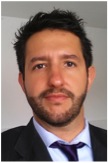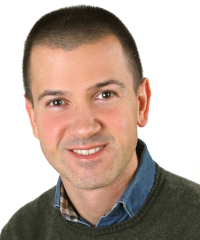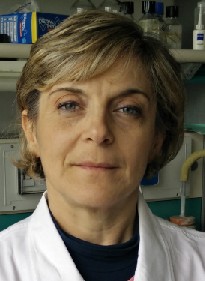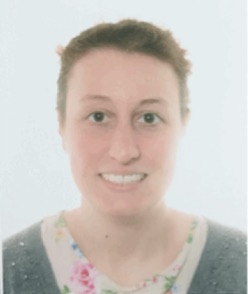Studying at the University of Verona
Here you can find information on the organisational aspects of the Programme, lecture timetables, learning activities and useful contact details for your time at the University, from enrolment to graduation.
Academic calendar
The academic calendar shows the deadlines and scheduled events that are relevant to students, teaching and technical-administrative staff of the University. Public holidays and University closures are also indicated. The academic year normally begins on 1 October each year and ends on 30 September of the following year.
Course calendar
The Academic Calendar sets out the degree programme lecture and exam timetables, as well as the relevant university closure dates..
| Period | From | To |
|---|---|---|
| CLID LEZ 1ANNO 1SEMESTRE VERONA | Oct 2, 2017 | Dec 7, 2017 |
| CLID LEZ 1ANNO 2SEMESTRE VERONA | Mar 5, 2018 | May 4, 2018 |
Exam calendar
Exam dates and rounds are managed by the relevant Medicine Teaching and Student Services Unit.
To view all the exam sessions available, please use the Exam dashboard on ESSE3.
If you forgot your login details or have problems logging in, please contact the relevant IT HelpDesk, or check the login details recovery web page.
Should you have any doubts or questions, please check the Enrollment FAQs
Academic staff
 lucia.bombasini@univr.it
lucia.bombasini@univr.it
 anja.meyer@univr.it
anja.meyer@univr.it
 alessia.pardo@univr.it
alessia.pardo@univr.it
 annarita.signoriello@univr.it
annarita.signoriello@univr.it
 marghe.viviani@gmail.com
marghe.viviani@gmail.com
Study Plan
The Study Plan includes all modules, teaching and learning activities that each student will need to undertake during their time at the University.
Please select your Study Plan based on your enrollment year.
1° Year
| Modules | Credits | TAF | SSD |
|---|
2° Year activated in the A.Y. 2018/2019
| Modules | Credits | TAF | SSD |
|---|
3° Year activated in the A.Y. 2019/2020
| Modules | Credits | TAF | SSD |
|---|
| Modules | Credits | TAF | SSD |
|---|
| Modules | Credits | TAF | SSD |
|---|
| Modules | Credits | TAF | SSD |
|---|
Legend | Type of training activity (TTA)
TAF (Type of Educational Activity) All courses and activities are classified into different types of educational activities, indicated by a letter.
Biomolecular fondamentals of life - BIOLOGIA APPLICATA (2017/2018)
Teaching code
4S000089
Teacher
Coordinator
Credits
2
Language
Italian
Scientific Disciplinary Sector (SSD)
BIO/13 - EXPERIMENTAL BIOLOGY
Period
CLID LEZ 1ANNO 1SEMESTRE VERONA dal Oct 2, 2017 al Dec 7, 2017.
Location
VERONA
To show the organization of the course that includes this module, follow this link: Course organization
Learning outcomes
To provide an evolutionary view of human biology, focusing on molecular and
cellular processes shared by all living organisms. To illustrate the mutagenic effects of chemical and physical agents. To teach the laws of genetic transmission. Students are expected to be able to understand the
consequences of various changes (e.g. mutations) occurring at the cellular level; they should also be able to recognize the different patterns of inheritance. Examples of specific genetic diseases will be discussed
At the end of the course, students must demonstrate to have gotten acquainted with basic knowledge of cellular functions, cell reproduction, cell-cell interactions, organism-to –organism interactions and organisms-to-environment interactions. They must also demonstrate to know how genetic traits are transmitted and be able to recognize inheritance patterns of genetic disorders, in particular those related to teeth development and structure. All these notions are a pre-requisite for further in depth studies , which will be undertaken by the students in subsequent courses.
Program
The historical bases of modern biology. General biology of prokaryotes. The evolution of eukaryotes; characteristics of the e. cell; cell cycle and its regulation, mitosis. The molecular bases of inheritance: DNA (structure, replication, other features). Definition of gene. The informational pathway: transcription (in prokaryotes and eukaryotes); mRNA processing, the regulation of gene expression. Chromatin and chromosomes, normal and pathologic human karyotype. Gene dosage and X chromosome inactivation in mammals. Sex determination in the developing embryo.
Mutations: various types; how , where and when do they happen. Various types of mutagens, DNA repair mechanisms.
Somatic mutations and cancer. Sexual reproduction, meiosis, human gametogenesis. Mendel’s laws of inheritance. Association and recombination. Human genetics, how to construct and interpret a pedigree. Genetics of blood groups (AB0, Rh). Examples of autosomal inheritance (dominant and recessive) and X-linked inheritance. Examples of mendelian diseases in man, with particular emphasis on disturbances of odontogenesis.
DIDACTIC MODES
Attendance to lessons is mandatory. Classes will consist of theorical lessons covering the whole exam program. Oral explanations will be coadiuvated by PowerPoint presentations and videos, which will be made available to students through a dedicated Department web site. Additional didactic supports (multiple choice quizzes for self-assessment, journal articles , reviews, etc.) may be suggested during the course and will be made available to students for download. During the whole Academic Year, students may request personal reception to the teachers, by e mail.
DIDACTIC MODES
Attendance to lessons is mandatory. Classes will consist of theorical lessons covering the whole exam program. Oral explanations will be coadiuvated by PowerPoint presentations and videos, which will be made available to students through a dedicated Department web site. Additional didactic supports (multiple choice quizzes for self-assessment, journal articles , reviews, etc.) may be suggested during the course and will be made available to students for download. During the whole Academic Year, students may request personal reception to the teachers, by e mail.
SUGGESTED TEXTBOOKS
- Elementi di biologia (Cellula-Genetica)- H. Helena Curtis, et al., I edizione italiana, 2017 Zanichelli ed. Bologna, ISBN: 9788808773784
- Elementi di biologia e genetica D.Sadava et al., IV edizione italiana, 2014 Zanichelli ed. Bologna, ISBN: 9788808335210
| Author | Title | Publishing house | Year | ISBN | Notes |
|---|---|---|---|---|---|
| Sadava, Hillis, Craig Heller, Hacker | Elementi di Biologia e Genetica (Edizione 5) | Zanichelli | 2019 | 9788808820655 |
Examination Methods
Written test (18 multiple choice quizzes plus 2 open questions) concerning the entire program. Goals of the written test are: a) to monitor students’ learning process, b) to monitor students’ capacity of personal re-elaboration of notions, c) to monitor students’ ability to apply theoretical notions to experimental queries.
The examination will concern both Biology /Genetics and Biochemistry modules. Final score will derive from partial evaluations in both modules; positive evaluations in both modules are requested. Students can either retire from the examination or refuse the prosed score.
Career prospects
Module/Programme news
News for students
There you will find information, resources and services useful during your time at the University (Student’s exam record, your study plan on ESSE3, Distance Learning courses, university email account, office forms, administrative procedures, etc.). You can log into MyUnivr with your GIA login details: only in this way will you be able to receive notification of all the notices from your teachers and your secretariat via email and soon also via the Univr app.
Gestione carriere
Graduation
Documents
| Title | Info File |
|---|---|
|
|
pdf, it, 714 KB, 13/11/23 |
Orario Lezioni
Si pubblicano gli orari definitivi delle lezioni relativi al 2° semestre:
La frequenza in aula delle lezioni è obbligatoria ed è prevista per tutti e tre gli anni di corso.
1 ANNO: Aula 3 Lente didattica
2-3 ANNO: Aula 5 lente - e Aule Piastra Odontoiatrica
Documents
| Title | Info File |
|---|---|
|
|
pdf, it, 34 KB, 26/09/23 |
|
|
pdf, it, 45 KB, 29/03/24 |
|
|
pdf, it, 36 KB, 29/09/23 |
|
|
pdf, it, 33 KB, 05/03/24 |
|
|
pdf, it, 30 KB, 26/10/23 |
|
|
pdf, it, 26 KB, 12/04/24 |
Calendario Esami
in questa pagina verranno pubblicati i calendari degli esami del Corso di Laurea.
Documents
| Title | Info File |
|---|---|
|
|
pdf, it, 99 KB, 01/12/23 |
|
|
pdf, it, 72 KB, 19/12/23 |
|
|
pdf, it, 93 KB, 21/12/23 |
|
|
pdf, it, 90 KB, 20/12/23 |
 045 8124094
045 8124094















